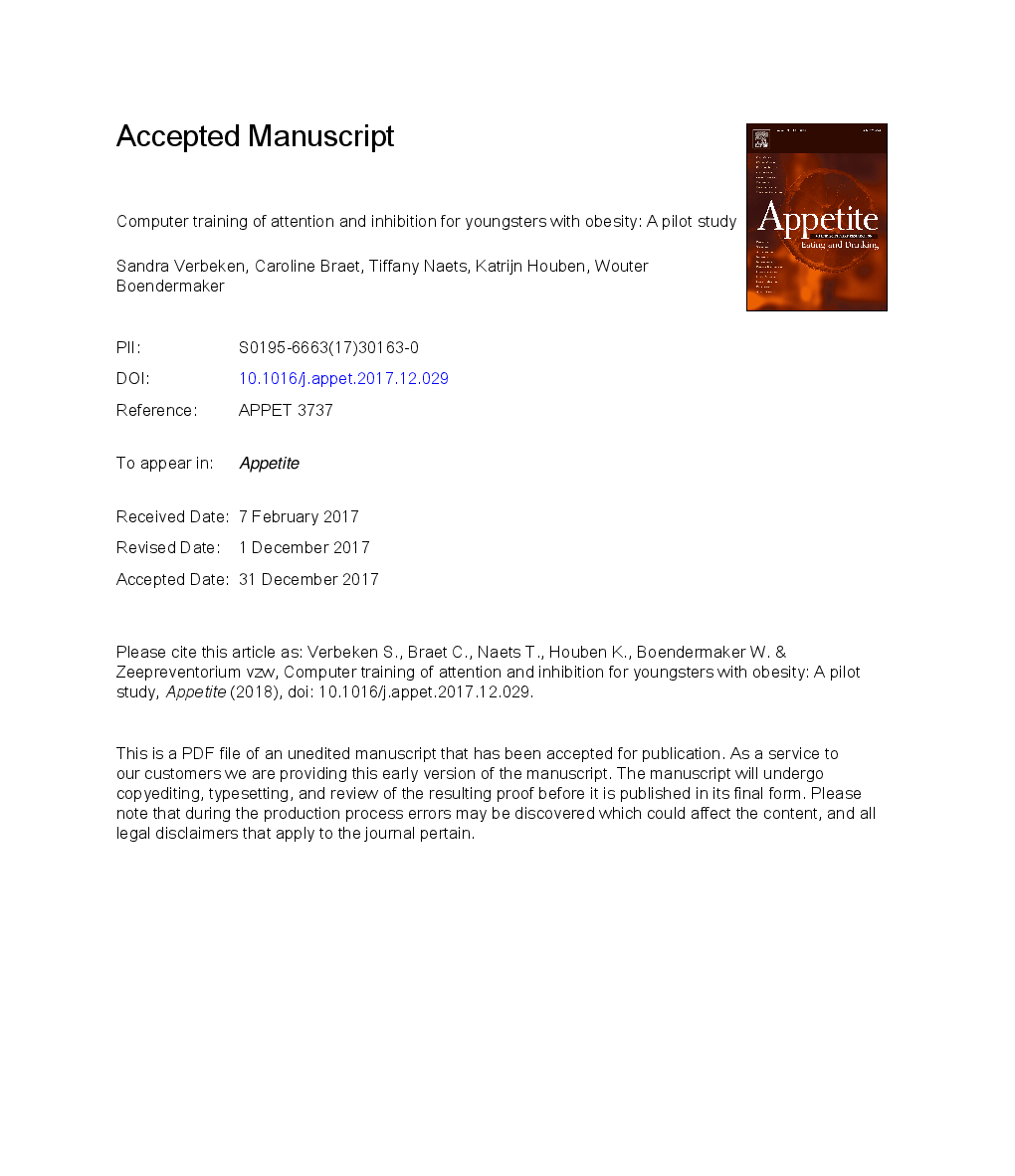ترجمه فارسی عنوان مقاله
آموزش کامپیوتر توجه و مهار برای نوجوانان با چاقی: یک مطالعه آزمایشی
عنوان انگلیسی
Computer training of attention and inhibition for youngsters with obesity: A pilot study
| کد مقاله | سال انتشار | تعداد صفحات مقاله انگلیسی |
|---|---|---|
| 154133 | 2018 | 32 صفحه PDF |
منبع

Publisher : Elsevier - Science Direct (الزویر - ساینس دایرکت)
Journal : Appetite, Volume 123, 1 April 2018, Pages 439-447
ترجمه کلمات کلیدی
چاقی دوران کودکی، بازداری، توجه رویکرد / اجتناب، عملکرد اجرایی،
کلمات کلیدی انگلیسی
Childhood obesity; Inhibition; Attention; Approach/avoidance; Executive functioning;

